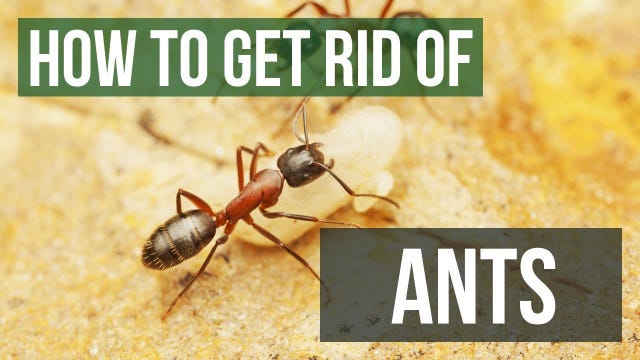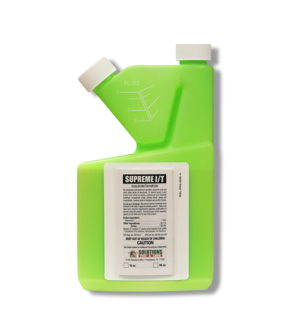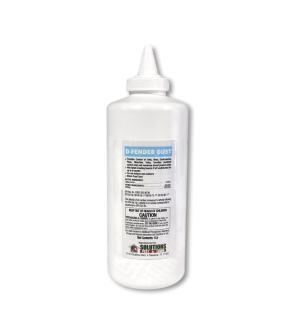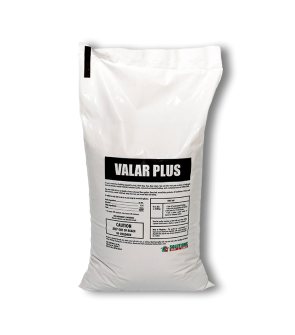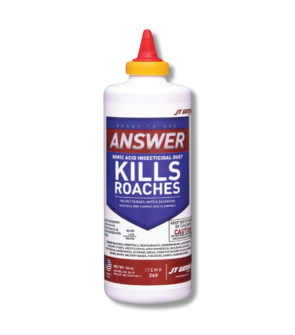Gain access to personalized product screening, the best pricing, rewards, and more!
Most Effective Products
How to Get Rid of an Ant Hill: The Top 8 Best Methods
This page is an expert guide on removing ant hills from your property using the products and methods our experienced pest control specialists suggested. Follow this guide and use the recommended products. We guarantee you will successfully eliminate ant hills and the ant population.
It’s not a big problem if the outdoor area of your house has a small number of ants, but in the event of a massive infestation or if the ants start to creep into the interior, you will have to take action.
Ants can multiply to large numbers, and most of them hide away on an ant hill that may be on your property. Sometimes, it's easy to find an ant hill as it may appear as a large mound on your lawn. Other times, they can be harder to find because they are tucked away in a secluded corner of your home. Even worse, if you're dealing with carpenter ants, the colony could be indoors, like a wall void or basement corner.
In this article, we will share eight ways you can destroy an ant hill. These are a mixture of home remedies and the use of professional pesticides. Read on to learn how to tackle an ant infestation on your property correctly.
Identification

Ants are one of the most common household pest issues in the world. Aside from seeing a trail of ants crawling along on your property or a mob of ants appearing in droves to consume dropped food or sweets, the biggest evidence of an ant infestation is the appearance of an ant hill.
Fire ants are among the most common species that create ant hills, especially in the Southern United States. If you are dealing with fire ants, your yard will quickly become a minefield of aggressive, stinging ants.
An ant hill often appears once the queen has mated. The ant queen is prone to act immediately after mating to create a safe environment for the colony to thrive underground. As the ants grow, their activities cause the hill to expand as they create a series of tunnels that gradually evolve into pathways, chambers, and numerous exits. Given the size of the whole network, it can be an extremely difficult task to eliminate.
Inspection

After identifying ant hills on your property, you can proceed with an inspection. Inspect the area to see if there is more than one mound, check for ant activity, and locate any ant trails. This will help you determine where you should focus your ant pesticide applications.
Where To Look
Ants form ant hills in areas where they have easy access to food. If you’re not keeping up regular decluttering and cleanup both in and around your home, ants will build an ant mound nearby to travel to and from their nest into your home to forage. They do this by laying out pheromones they release to mark ant trails. Ants follow the pheromone scent in a line to the food source and back.
What To Look For
Ant hills are usually very clear when set up in your yard. In other situations, they may be hidden in a secluded area. If you notice an ant trail, observe it closely and follow the ants as they travel. They may lead you straight to their ant hill.
Treatment
Getting rid of ant hills can significantly reduce and devastate an ant infestation. You can approach destroying an ant hill in many ways, and we want to share eight of the top ways we've gathered. What you choose depends on whether you want to get rid of the ant hills naturally or use a professional pesticide.
1. Boiling Water
Boiling water is a simple and effective solution that you can immediately try. Simply boil a kettle of water, locate the ant hill, and pour it right over the top.
The water will gradually trickle through the entire maze of tunnels and flood the colony; the heat of the water will be enough to eliminate any ants that come into contact with it. Moreover, the temperature will also ensure that the tunnels are destroyed.
This may seem to suggest that the problem can be solved in one go, but this is often not the case.
The one problem with this method is that if any ants are buried far deeper, they will have sufficient time to evacuate the nest. If there are survivors, there is a high chance that you will notice evidence of ants attempting to rebuild their colony after a few days.
2. D-Fender Dust
D-Fender Dust is an easy-to-use insecticidal dust typically used for treating cracks, crevices, and entry points to homes and structures. It's great for treating those hard-to-reach areas where pests hide. But if you find fire ant mounds in your yard, you can also use D-Fender Dust.
For best results, sprinkle about 0.5 ounces of D-Fender Dust over the top of the ant mound when temperatures are between 65 and 80 degrees Fahrenheit. Do not disturb the mound or water the dust in. Allow the dust to work for 3 to 4 days for maximum control. Be sure that when measuring out the dust, you do not use actively used food utensils, like spoons or measuring cups.
3. Flattening it Out
If the anthill is made of solid material, a simple solution is to use a rake to remove it and completely flatten out the ground, eliminating the entrance to the hive. This will upset many of the ants and establish amongst them that the area is no longer safe to stay in.
The ants, however, will rebuild after that, so you’ll have to stick at it for a while before they get the message that the area is permanently unsafe. However, if you want to avoid chemicals completely, this would be the way to do it.
4. Outdoor Treatment with Valar Plus Bifenthrin Granules
Valar Plus Bifenthrin Granules are a granular insecticide labeled to treat many different ant species. They are effective in eliminating large ant infestations around the yard. This product specifically targets worker ants that are out foraging for food in the yard, and its residual effect can last up to three months.
Apply Valar Plus Bifenthrin Granules by broadcasting them over your entire yard. This is important because if you treat only the mound, the ants will move and make a new one.
You could use a push or a hand spreader to broadcast the Valar Plus Bifenthrin Granules. While both styles are easy to use, a broadcast may be better suited for larger lawns as it holds more granules than a hand spreader and can quickly cover a lot of ground.
The handheld spreader is ideal if you need to spread granules on a flowerbed, around trees, or over a smaller area and want to do it quickly yet precisely.
First, measure the square footage of your yard (length x width). Valar Plus Bifenthrin Granules application rate is 2.3 pounds per 1,000 square feet of lawn. Adjust the Valar Plus Bifenthrin Granules needed based on your final square footage measurement and add it to your spreader.
Spread Valar Plus Bifenthrin Granules over your entire lawn, in flower beds, around trees, and anywhere else you have noticed ant activity. Once the granules are broadcast, water the area to activate them for effective control.
5. Use Boric Acid
If you want an option similar to the D-Fender Dust application, you can use boric acid powder. Sprinkle the boric acid over any hill and let it handle the rest.
6. Carbonated Water
Carbonated water is extremely effective, especially for eliminating ants at the deeper levels of the anthill. The idea is that the carbon dioxide displaces all the oxygen in the area where the water is poured. The reaction extends deep underground and causes the ants to suffocate at the deeper levels.
7. Directly Treat The Ant Hill With Supreme IT
Supreme IT Insecticide is ideal for treating ant hills directly because the active ingredient (Bifenthrin) is effective against many ant species and carries a long residual effect. The drench method is one of the best methods to eliminate an ant hill in your yard.
To do this, dilute 1 teaspoon of Supreme IT per gallon of water and use 1 to 2 gallons of the finished product in a sprayer, then apply the solution over the top of the mound and allow the dilution to flood the entire ant hill. Drenching is ideal because it allows the insecticide to reach the ant queen, kill her, and end reproduction. For best results, you will want to treat roughly a 4-foot diameter area around the mound.
8. Soapy Water
Any soap may be used, but Borax would be a good option for this particular purpose.
Creating a soapy mixture has two effects. If it boiled, enough liquid would drown out the colony and destroy the structures. The stickiness of the soap would make it difficult for ants to escape the deluge.
Prevention
After you eliminate the ant hills, you are not done. Preventative measures must be taken to make sure ants don't make a return and set up another ant hill down the road:
- Ensure you keep your food serving area clean of messes and loose food.
- Use caulk to seal up cracks, holes, and other entry points that ants could use to forage indoors.
- Trim back any foliage that touches your house. Bushes, trees, and shrubs act as bridges for the ants and allow them to enter through windows more easily.
- Stack your firewood away from the house. This is a fire hazard; the ants will use the wood as a hideaway.
- If you spot ant hills reappearing in your yard, spray or drench the mounds with insecticide and plant grass in the bare spots. Keeping and maintaining your yard discourages ants from making themselves at home.
- Treat your yard quarterly with a preventative application of Supreme IT to keep ants away all year.
Key Takeaways
What are Ant Hills?
- Ant hills are usually large mounds or nests formed by various species of ants either outdoors in the yard or indoors in a secluded area.
- Ant hills formed around your home are a worrying sign of a significant ant infestation that needs to be swiftly dealt with.
How To Get Rid of Ant Hills Quickly and Easily
- There are numerous chemical and non-chemical routes to destroying an ant hill. Professional products like Supreme IT, Valar Plus Bifenthrin Granules, or D-Fender Dust are the most effective options.
Preventing Ant Hill Reinfestation
- Seal up points of entry, practice good sanitation and exclusion measures, and apply Supreme IT Insecticide preventatively to prevent ants from returning and rebuilding ant hills.






